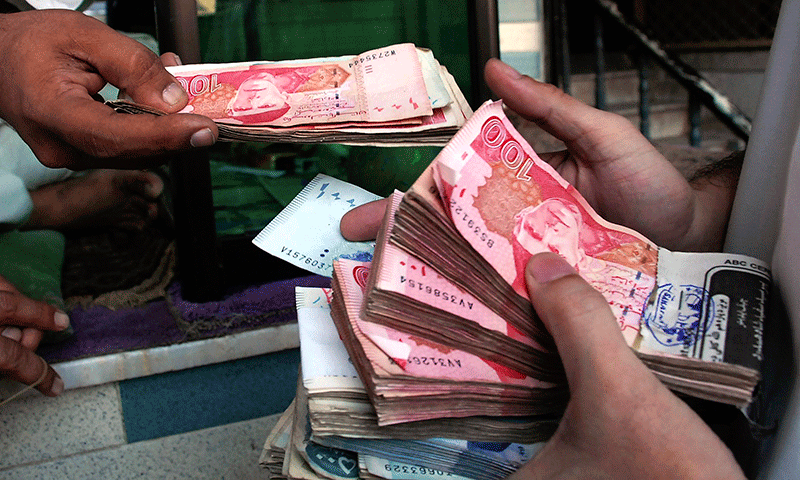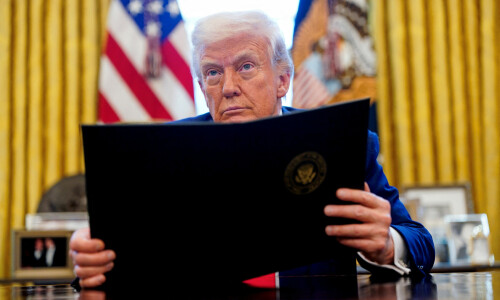ISLAMABAD: Foreign Minister Shah Mehmood Qureshi has told the Senate in clear terms that Pakistan will not send troops to Yemen to lend support to the Saudi-led forces engaged in fighting there.
Speaking in the upper house of parliament on Wednesday, he said Pakistan enjoyed friendly relations with both Saudi Arabia and Iran and was trying to play a mediatory role between them. Both countries gave importance to Pakistan due to the neutrality maintained by it.
During his recent visit to Islamabad Iran’s foreign minister had said that Tehran would respond positively if Pakistan wanted to play some role in the conflict in Yemen, according to Mr Qureshi.
Qureshi says Saudis have softened aversion to mediation
He said a similar effort had been made when Nawaz Sharif was prime minister; Iran had agreed to Pakistan’s suggestions but Saudi Arabia had refused.
“This time I see a slight shift in the Saudi position,” he remarked and expressed the hope that constant engagement would bear fruit.
The issue was raised by Senator retired Gen Abdul Qayyum of the Pakistan Muslim League-Nawaz, who sought an explanation over reports the government had agreed to contribute troops to the Saudi-led coalition fighting Houthi rebels in Yemen and that the Iranian minister had come to the federal capital to voice concerns over the development.
Mr Qureshi said the confrontation between Saudi Arabia and Iran had reached alarming levels because the proxy wars between them could destabilise the entire region.
He referred to the US-Arab summit held in Riyadh in May last year, attended also by President Donald Trump, and said the language used at that meeting showed the anti-Iran sentiments prevalent among the participating countries.
The foreign minister also talked about Iran’s relations with Syrian President Bashar Al Assad. Russia, which had gone in the background after the demise of Soviet Union, had made a strong comeback and had a sizeable presence in Syria.
Mr Qureshi pointed out that the US had again imposed sanctions on Iran after pulling out of an international nuclear agreement under which the restrictions had been removed. The new sanctions could affect the neighbouring country’s economic and political stability.
He said that some countries, including India, had been given waivers to continue importing oil from Iran, but added that gas supply to Pakistan from Iran was a different issue altogether, even though the sanctions did not cover natural gas.
Turning to Prime Minister Imran Khan’s visit to China, he said that Beijing had agreed to help Pakistan by addressing trade imbalance and giving it greater access to its markets. He observed that Pakistan could double its exports to the neighbouring country.
China had agreed to upgrade the strategic-level dialogue with Pakistan to the foreign minister-level, he said.
About the China-Pakistan Economic Corridor, Mr Qureshi said in the second phase of the mega project the emphasis would shift from infrastructure development to livelihood, education, health, skill development, poverty alleviation, agriculture and industrial productivity. Speedy development of the Gwadar port would give practical shape to the concept of regional connectivity.
A meeting between China, Pakistan and Afghanistan would take place in Kabul next month to discuss the efforts that could be made for peace and reconciliation in Afghanistan, the minister said.
Foreign Minister Qureshi underlined the need for evolving a national consensus on foreign policy based on a long-term approach.
Earlier, Gen Qayyum said Pakistan could not afford to commit troops to any regional conflict, including in Yemen. He pointed out that a joint session of the parliament had decided a couple of years ago that Pakistan would not contribute troops to any regional conflict and would remain neutral.
“The government needs to disclose the terms and conditions of the loans being obtained from abroad and give an explanation over possible involvement of Pakistani troops in Yemen,” he said.
He also sought to find out the exact amount required to ease the current balance of payments crisis, the government’s plan to meet the challenge, progress so far made and exact terms and conditions behind the loans being obtained from other countries.
The senator also asked the treasury members to explain the government’s vision for the economy.
Published in Dawn, November 8th, 2018












































